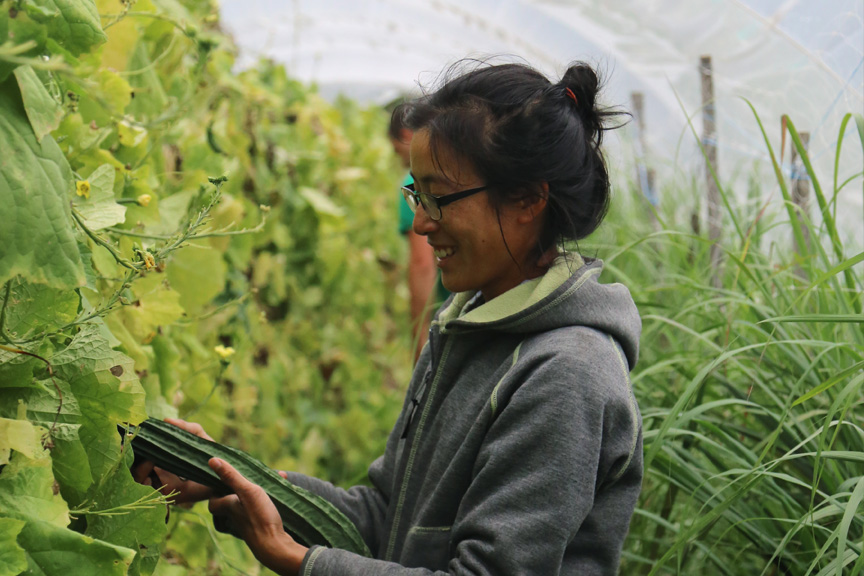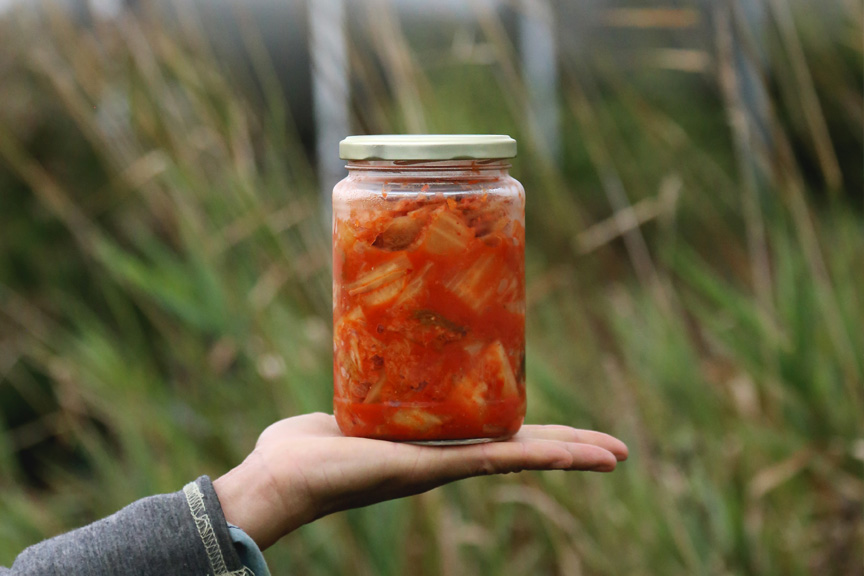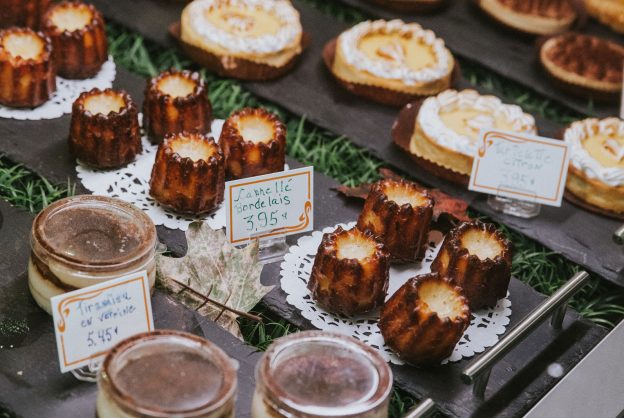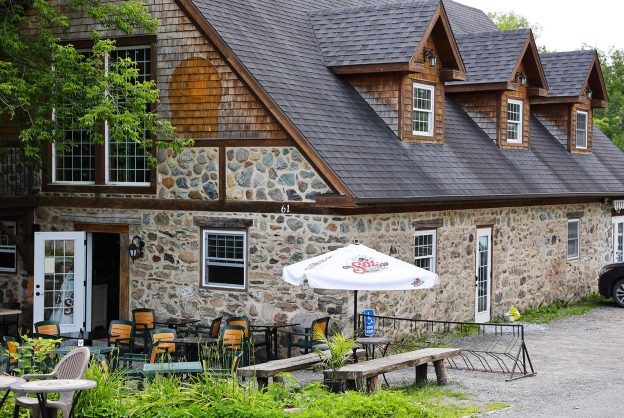Rizen: A Taste of Asia in Frelighsburg
On a hot day in September, I went out to visit Stéphanie Wang. I arrived at the Pettigrew farm, on the slopes of Mount Pinacle in Frelighsburg early in the morning. The sun was beating down on us, and the locusts had already begun their reverberating song.
This farmer’s Asian vegetable production covers a half hectare inside a charming domain. The organic vegetable parcel of her partner, Stanislas Pettigrew, occupies five hectares. Stanislas also produces maple syrup and birch syrup on their family-run farm.
I join Stéphanie, who’s crouching at the other end of the field, harvesting chow sum, also known as Chinese broccoli, along with her apprentice Guillaume. There are a lot of leaf vegetables that must be picked. So, the young woman talks about her enterprise, Le Rizen, as she continues to gather sprouts in small bouquets and tying them with an elastic before placing them in grey plastic bags.

Her Rizen adventure was officially launched in 2016, but Stéphanie’s interest in agriculture goes way back. “I’ve always had an interest in nature and the environment. After I completed my studies in sociology, I interned in India with farming organizations, and it was truly this experience that made me want to pursue with this endeavour. I worked for five years inside farming and agricultural organizations in Quebec, Canada and different areas of the world; I take to heart our food sovereignty. I learned my trade in the field, by working on farms. I enjoyed this active way of life, working outside on so many varied projects. It made me want to start my own Asian organic vegetable production,” explains this Montreal native with Cantonese roots.
Since no other enterprise specialized in this niche in the province, the young entrepreneur decided to launch her project. It was her way of reconnecting with her culture and accomplish something that represents who she is.
“I wanted to do something different and to have others discover these products,” she says. “I thought of it as a great challenge because the Asian vegetables we find in Quebec markets are not from here; they’re not organically grown and travel long distances before they arrive on our plates. Because of this they lose a lot of their nutriments and their taste along the way.”
Stéphanie grows about thirty varieties of vegetables and fine herbs; Among them, we can find bok choy, Chinese eggplants, luffa, edamames, mizuna, shiso and tatsöi. She also transforms some of her products, like her kimchi, mizuna pesto and her Asian vinaigrette. She sells all these delicious products at the public market in Sutton.

When harvesting season ends, around the end of October or early November, the dynamic farmer will take some time off, but she won’t remain idle for long. She’ll start planning the next Rizen season and continue taking farm business management classes in a continuous training program. She’ll also be working on having her products placed on grocery store shelves.
But until then, Stéphanie still has a lot of Chinese broccoli to pick. So, with a bouquet of her broccoli in my hand, I leave her. As I bite into it, I think Chinese culture and Quebec agriculture form a truly delicious combination.




0 comments